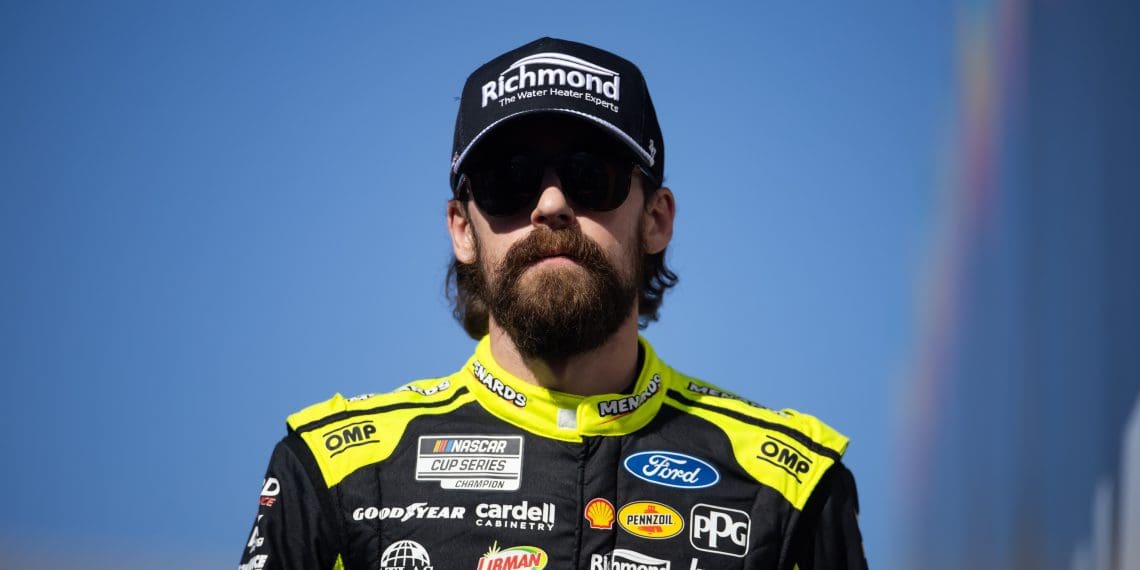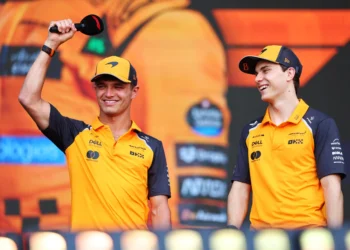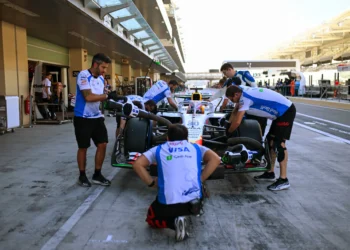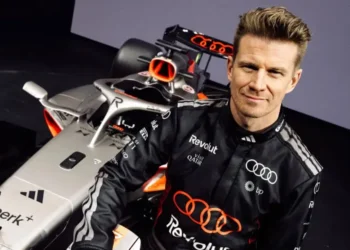The 2025 NASCAR Cup Series rulebook is out, and one change has already ignited controversy—the new Daytona 500 eligibility rule. Designed to tighten entry requirements, the regulation has already sidelined veteran drivers like Mike Wallace while handing out exemptions to select open-wheel stars like Helio Castroneves.
And Ryan Blaney isn’t happy about it.
The Daytona 500’s New ‘Open Exemption Provisional’ Rule: What Changed?
The new regulation, dubbed the ‘Open Exemption Provisional’ (OEP), introduces a reserved 41st starting spot—but only for certain elite drivers from other racing series like IndyCar, WEC, and Formula 1.
- Mike Wallace, a former NASCAR driver, was denied entry due to a lack of recent racing activity on intermediate or larger tracks (his last attempt was in 2015).
- Helio Castroneves, an IndyCar veteran, was granted an automatic spot because of his active competition status in open-wheel racing.
- The new rule does NOT apply to full-time NASCAR Cup drivers.
This controversial change has divided the NASCAR garage, and Ryan Blaney is the latest driver to weigh in—both supporting and criticizing the move.
Blaney: “I Was Pumped to Race Helio, But NASCAR Shouldn’t Get Greedy”
Speaking on Door Bumper Clear, Blaney expressed his excitement about racing against Helio Castroneves but was also critical of NASCAR’s approach to driver selection.
“Personally, I’m happy for Helio because I love Helio. He was driving IndyCars when I got over to Penske, and he’s one of the nicest and greatest human beings you’ll ever meet. I was pumped to race with him at Daytona.”
However, while he appreciates seeing international talent in NASCAR, Blaney warned that the sport is walking a fine line.
“Don’t get greedy with this,” he cautioned.
Other Drivers Weigh In: Is NASCAR Handing Out ‘Free Spots’?
Blaney isn’t the only one questioning NASCAR’s motives. Chase Elliott and Denny Hamlin also voiced their concerns, emphasizing that NASCAR shouldn’t be handing out free Daytona 500 entries.
“If we’re just giving out free spots to other folks who want to come in and run one-offs, you got to be able to get your work in and qualify for it,” Blaney echoed.
“It sucks if qualifying gets rained out and you don’t make the show, but that’s just part of racing.”
Is NASCAR Just Trying to Boost Attention?
Some critics argue that the Open Exemption Provisional is a desperate move—an attempt to boost NASCAR’s prestige by attracting big-name international stars.
But does it come at the cost of fair competition?
With 36 chartered teams guaranteed spots, the four remaining open spots are typically earned through single-car qualifying and split-field races. The OEP exemption disrupts this system, effectively pushing out deserving full-time or veteran drivers in favor of marketing-friendly names.
Final Thoughts: Will This Rule Hurt NASCAR’s Credibility?
While the idea of bringing international racing stars into NASCAR sounds exciting, it shouldn’t come at the expense of drivers who have put in the work.
Ryan Blaney’s criticism is valid—if NASCAR starts prioritizing name recognition over merit-based qualifications, it risks losing credibility among hardcore fans and competitors.
For now, the 2025 Daytona 500 entry list isn’t finalized, but one thing is clear—this rule will remain a hot-button issue all the way to Speedweeks.










